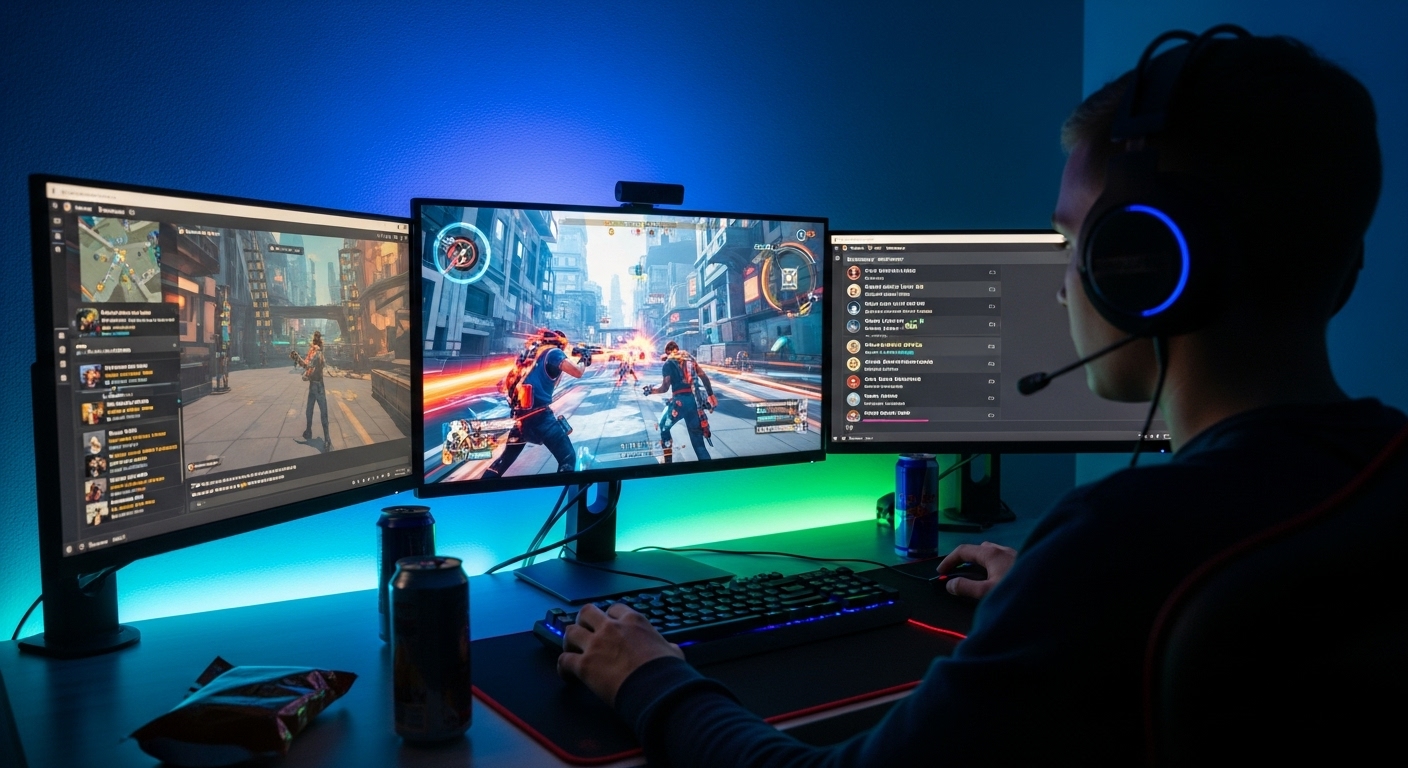In the ever-evolving world of gaming, player choices have expanded exponentially. With the rise of digital storefronts, countless options for every genre, and more games being released than ever before, making a decision on which game to play can be overwhelming. In this sea of choices, game reviews have become a guiding light for players. Whether you are an avid gamer or someone casually looking to discover something new, game reviews can profoundly influence your decision-making process. In this blog post, we will explore how game reviews impact player choices, the different types of reviews available, and the psychological and social factors that make reviews such a powerful tool in gaming culture.
Game reviews, whether written, video-based, or shared through social media, have become an indispensable part of the modern gaming experience. Once, players relied on word-of-mouth recommendations from friends or the opinions of trusted gaming magazines. Today, however, the internet has made reviews more accessible and influential than ever before. Popular websites like IGN, Kotaku, and Metacritic aggregate player and critic reviews, providing players with a snapshot of the game’s reception from different perspectives.
Review platforms like YouTube, Twitch, and personal blogs have introduced new voices into the conversation, offering a wider variety of opinions, often with more detailed analyses and diverse perspectives. This has changed the way players approach game choices, as many now rely on multiple sources of information before committing to a purchase or download.
The Different Types of Game Reviews
Game reviews come in a variety of formats, each offering unique advantages and contributing differently to the player’s decision-making process. Understanding these types is essential to comprehending their influence on player choices.
Critic Reviews
Critic reviews are typically written by professional journalists, editors, or critics who specialize in gaming. These reviews are often found on popular gaming websites, magazines, and news outlets. Critics tend to approach the game from a more technical or analytical standpoint, focusing on aspects such as gameplay mechanics, story structure, visuals, sound design, and overall innovation.
Critic reviews are usually thorough, offering both a summary of the game and an in-depth critique based on various elements of game design. Players who trust critic reviews often rely on them for an objective opinion, as critics are generally expected to maintain a level of professionalism and detachment. These reviews can provide a deeper understanding of a game’s strengths and weaknesses, offering a critical lens for players who want a more informed perspective before making a purchase.
User Reviews
In contrast to critic reviews, user reviews come directly from the player community. These reviews are often found on digital storefronts like Steam, the PlayStation Store, or the Microsoft Store, where players can leave their own feedback after playing the game. User reviews tend to be more subjective and diverse, reflecting the personal experiences and preferences of individual players.
User reviews can be helpful for players looking for specific information about a game, such as how accessible it is for beginners or whether it contains certain features like multiplayer modes or microtransactions. Since user reviews are based on real-life experiences, they offer a valuable glimpse into how a game performs under typical conditions. However, they can also be biased or skewed by isolated issues, such as bugs or negative personal experiences, which is why many players tend to look at the overall average score rather than individual reviews.
Video Reviews
With the explosion of platforms like YouTube and Twitch, video reviews have become one of the most influential forms of review in gaming culture. Video reviews allow players to see the game in action, providing a visual representation of gameplay mechanics, graphics, and overall experience. This format also allows reviewers to share their commentary in real-time, creating a more interactive and engaging review experience.
Video reviews are especially appealing to players who want to see the game in action before deciding whether to buy it. These reviews often come from influential content creators or streamers, whose opinions are trusted by large communities of followers. Additionally, video reviews tend to be more personable, as the viewer can connect with the reviewer’s emotions, reactions, and style of presentation. For many players, watching a review on YouTube or Twitch has become a standard part of the decision-making process.
Social Media and Forums
Social media platforms like Twitter, Reddit, and Facebook provide a space for players to discuss games in real-time. These platforms often host communities where gamers share their experiences, thoughts, and opinions on the latest releases. Conversations in forums and social media groups can act as an informal review system, where players can ask questions, provide feedback, and share insights with others.
The influence of social media reviews is particularly potent in today’s gaming world, as players often follow influencers, developers, or gaming communities whose opinions align with their own. User-generated content on platforms like Reddit, where discussions can often include both positive and negative feedback, provides a more nuanced view of a game. For example, a post about bugs or performance issues on a specific platform might lead players to wait for patches or updates before making a purchase.
The Psychological Influence of Reviews
The impact of game reviews on player choices is not purely rational. Players’ decisions are often influenced by a complex web of psychological and emotional factors that make game reviews so persuasive.
Bandwagon Effect
One of the most significant psychological factors in the influence of reviews is the bandwagon effect. This phenomenon occurs when individuals are influenced by the opinions or behaviors of others, especially when they see a trend developing. If a game receives a lot of positive reviews, players may feel more inclined to purchase it, even if they don’t know much about it. The more people praise a game, the more others will want to join in, often out of a desire to be part of the “in” crowd.
In the case of negative reviews, the bandwagon effect can work in reverse. When a game receives a flood of negative feedback, players may avoid it even if they were initially interested. This social proof, whether positive or negative, can have a powerful effect on player choices, as people tend to follow the crowd, especially when they feel uncertain about a decision.
Confirmation Bias
Another factor at play is confirmation bias. This is the tendency for players to seek out reviews that align with their pre-existing beliefs or expectations. For example, if a player is particularly excited about an upcoming game, they might focus on the most positive reviews and overlook criticisms. Conversely, if they have reservations about a game, they may focus on negative reviews to validate their concerns.
Confirmation bias can lead players to make decisions based on emotions rather than objective analysis. This is why it is important for players to approach reviews with a balanced perspective, considering both positive and negative feedback before making a decision.
Social Influence and FOMO (Fear of Missing Out)
FOMO, or the fear of missing out, is another psychological phenomenon that drives players’ gaming choices. Game reviews often highlight exclusive content, limited-time offers, or special events, making players feel as if they will miss something important if they don’t act quickly. As a result, reviews can create a sense of urgency, compelling players to make a purchase even if they aren’t entirely sure about the game.
Influencers and streamers contribute heavily to this effect, as their reviews and gameplay streams often feature games that are “hot” in the community. Watching a game being played by someone you admire or follow can create a strong desire to be part of the experience, pushing players to make a purchase based on the desire to fit in or be part of the gaming conversation.
The Role of Review Scores and Aggregates
Many players rely heavily on aggregated review scores, like the ones found on Metacritic or OpenCritic, which compile reviews from multiple sources into a single numerical score. These scores often have a significant impact on a player’s decision-making process, as a high score can signal quality, while a low score may deter potential players.
While aggregate scores provide a quick snapshot of a game’s reception, they don’t tell the full story. For instance, a game might receive a low score due to issues like technical bugs or poor performance on specific platforms, which may not affect all players equally. Similarly, a high score doesn’t always guarantee that a game will suit an individual player’s tastes or preferences. Despite these limitations, aggregate review scores continue to play a major role in influencing player choices, acting as a shorthand for quality.
Conclusion
Game reviews play a pivotal role in shaping the choices players make in the increasingly vast landscape of gaming. They offer critical insights, influence emotions, and impact decisions in ways both subtle and direct. Whether through professional critic reviews, user feedback, or video commentary, reviews provide a platform for players to assess a game’s worth before committing their time or money.
However, the influence of reviews goes beyond simply informing players. Psychological factors such as the bandwagon effect, confirmation bias, and FOMO can all shape the way players interpret reviews, sometimes guiding them toward decisions that are more influenced by social trends than objective quality. Therefore, while game reviews are invaluable tools, players must also remain aware of their biases and make informed decisions based on a holistic view of the game’s merits and flaws.
In the end, reviews are an essential part of the gaming ecosystem, offering players the guidance they need to make informed choices in a world flooded with options. As the industry continues to grow, the importance of reviews—and the role they play in shaping gaming culture—will only become more pronounced.



